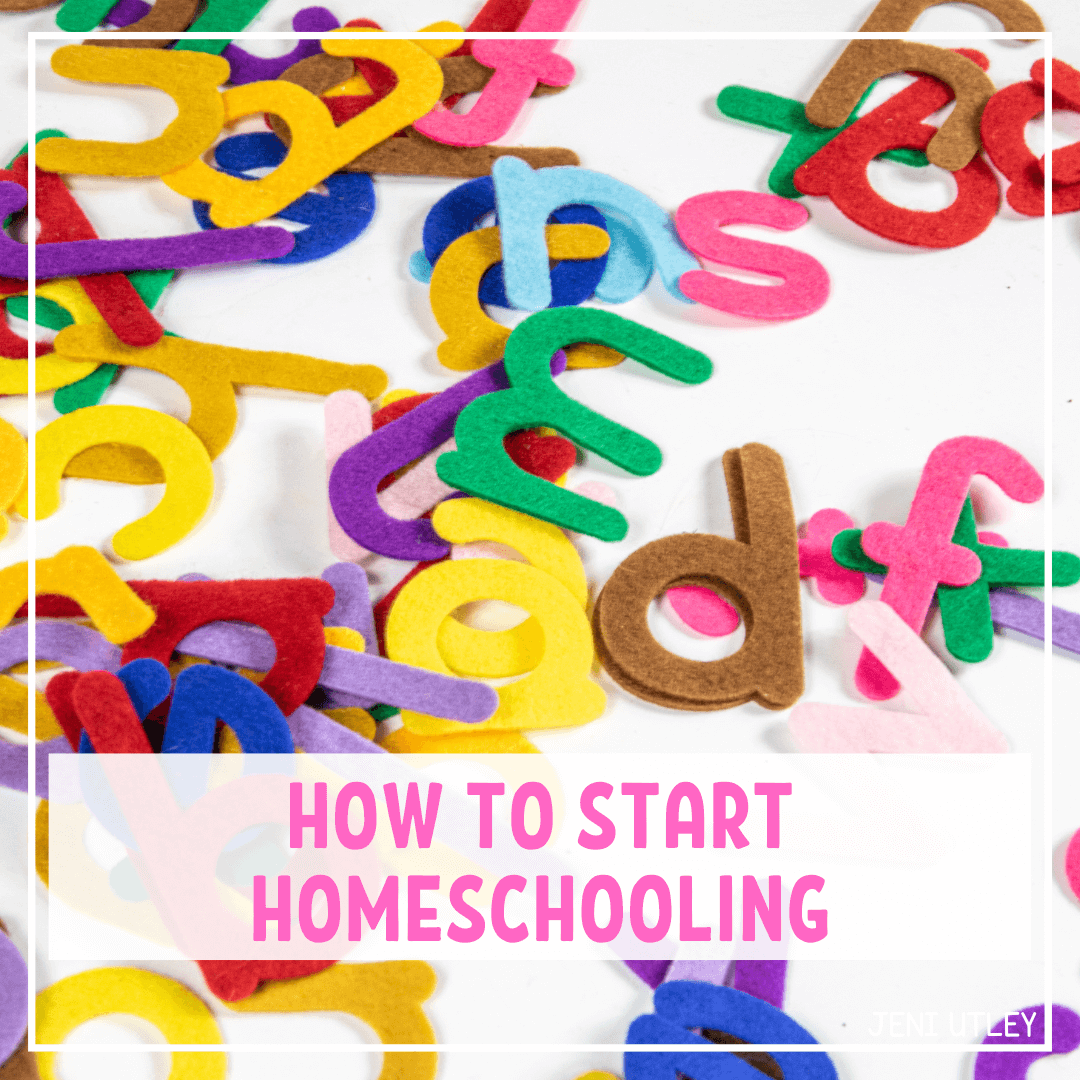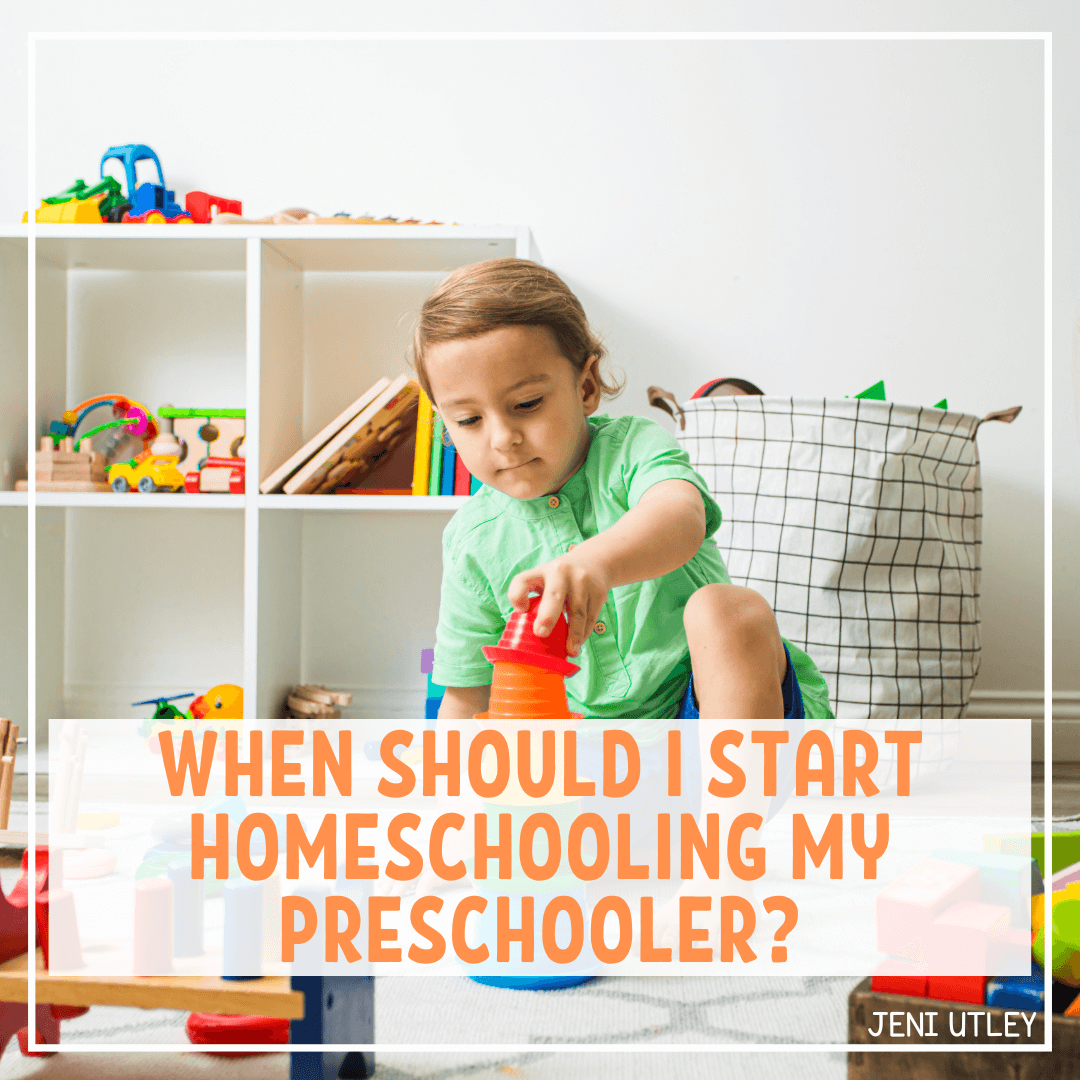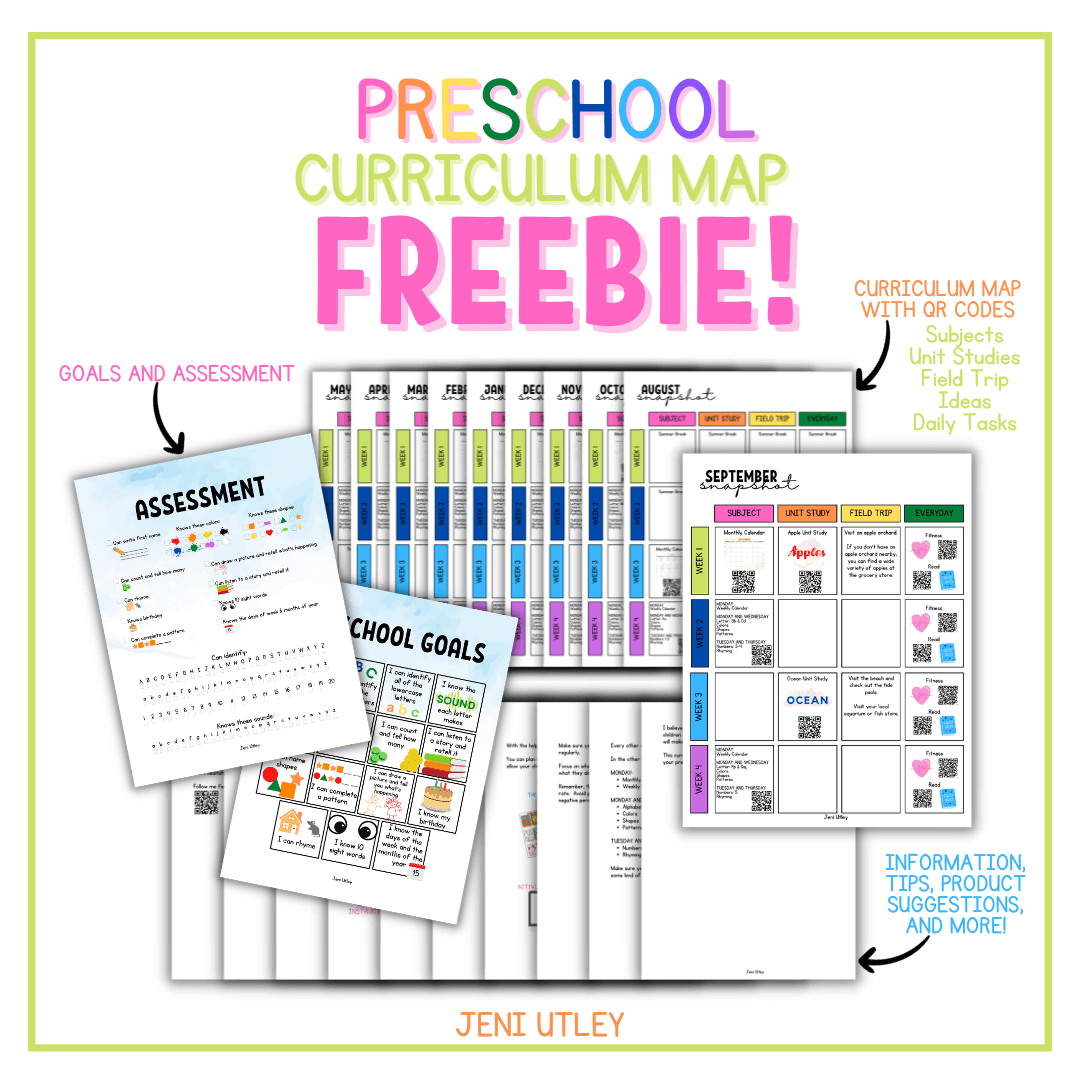
Once you decide to start homeschooling, what you do next can be pretty confusing. You probably have a lot of questions...
At what age should I start homeschooling my child?
What are the homeschool laws?
What curriculum will I choose?
What is my child’s learning style?
What is my teaching style?
How will I schedule my days and weeks?
Should I join a homeschool group?
Will my child take classes?
I'm here to help!! Keep reading and let's figure this thing out!
WHEN TO START HOMESCHOOLING
We are teaching our kids from the day they are born but how do we know when it’s time to officially dive into homeschooling?
KNOW YOU STATE'S LAW AND REGULATIONS
Before taking on the responsibility of homeschooling, it's essential to familiarize yourself with the laws and regulations in your state. Some states have specific requirements for homeschooling, such as having a certified teacher as the main educator, while others have more lenient regulations. Knowing these guidelines will help you tailor your homeschooling approach and ensure you stay within the law.
Homeschooling is legal in all 50 states but every state has different requirements. If you don’t follow your state laws, you may face prosecution.
For the most up-to-date state law information, visit the HSLDA website. If you are worried or live in a high-regulation state, you can choose to pay HSLDA a monthly fee to protect you legally.
DETERMINE YOUR HOMESCHOOLING APPROACH
One of the benefits of homeschooling is that you get to decide how and what your child will learn. A homeschool approach can vary, from structured to unschooled, religious-based to secular-based, and more. Take time to research and choose an approach that aligns with your values and your child's learning style. Keep in mind that your approach may change and evolve as you and your child learn what works best.
CHECK OUT MY PRESCHOOL CURRICULUM AND MY FREE PRESCHOOL CURRICULUM MAP!
DISCOVER YOUR “WHY”
Homeschooling is a huge commitment. You are responsible for your child’s education, as well as your house, the laundry, meals, maybe you work… You might even have kids in different grades, making each day even more challenging.
Homeschooling is extremely rewarding but it isn't always easy. Many things in life are easier when you know WHY you are doing it.
Determine your WHY and write it down somewhere you will see it often. You can also grab a notebook or journal and, as often as you’d like, write down everything you love and are grateful for each day because you decided to homeschool. You can find at least one thing to write about each day OR you can write as it comes to you.
Write about:
- Moments you shared with your kids.
- Not worrying about work while kids are sick.
- The different places you get to visit.
- Allowing your child to learn through their strengths and passions.
You can start your journal before the school year starts with a list of reasons why you made the decision to start homeschooling. On tough days, you’ll be able to come back to this journal and remember your WHY. This will help you get through the days that are feeling extra challenging.
SET A SCHEDULE AND ROUTINE
Creating a routine and schedule for your homeschooling day will help keep both you and your child on track. At the preschool age, children typically have short attention spans, so keep lessons short and varied. Incorporate plenty of playtime, rest, and outdoor exploration. While homeschooling allows flexibility, having a daily routine will help create structure and familiarity for your child.
YOUR HOMESCHOOL SPACE
You don’t have to have a specific space for learning but if that’s what you need because you’re an organized person, do it! Remember, your child can learn anywhere. You don’t need fancy decorations or fancy toys, desks, or a dedicated room. Do what works best for you, not what you think you should be doing.
DESCHOOL
A lot of us have this idea in our heads of what school looks like. This is where the word “Deschool” comes from. It’s the process of letting go of traditional school norms and embracing a more personalized approach to learning. This is one of the key principles of homeschooling – tailoring education to fit your child's individual needs and interests.
In deschooling, you may also need to unlearn certain habits or beliefs about education that have been ingrained in you from our own schooling experiences. This can be challenging, but it's important to trust in your child's ability to learn and thrive outside of the traditional school setting.
FIND YOUR PEOPLE
Though you are homeschooling your child, you don't have to do it alone. Connecting with other homeschooling families and resources can provide valuable support and information. Attend local homeschooling groups, join online communities, and seek guidance from experienced homeschoolers. Remember that homeschooling is a unique journey, and having a network of like-minded individuals can make all the difference.
Here are some options for meeting other parents and socializing your kids:
- Find a mom group. Try MOMS Club or MOPS.
- Find a homeschool group. Try Wild and Free.
- Find a homeschool co-op.
- Ask your charter school if they offer enrichment classes.
- Search in local Facebook groups for specific groups based on your interests. Other moms are always willing to help!
- Look on Meetup.com
- Or simply use Google!
Check out my Facebook group:
KEEPING RECORDS
Each year, especially in the younger years, you will accumulate a lot of crafts. If you’re like me, you want to keep them all. One thing you can do is create a yearly binder or container with everything you want to save. You can create a cute cover page with the year on it and even add some photos if you’d like.
Homeschooling your preschooler can be a rewarding and fulfilling experience for both you and your child. Remember to research and understand your state's laws and regulations, choose a homeschooling approach and resources that align with your values and your child's learning style, set a schedule and routine, and connect with other homeschooling families and resources. Remember to also stay flexible and adaptable as you and your child navigate through this journey together. With patience, dedication, and a love for learning, you can provide your child with a high-quality education that fits their individual needs.
For more information, check out the NEW TO HOMESCHOOLING section of my website.

- Jeni
___________________
**ALL THINGS HOMESCHOOL PRESCHOOL**
Check out my PRESCHOOL CURRICULUM! This is where you get all of my unit studies, activities, tips, and more!!
FREEBIE: Preschool Curriculum Map!
Check out my website for blogs and freebies!
All of the products on this page are products my kids and I use and love or products I personally recommend!
All of the opinions expressed here are my own. With that said, this page contains affiliate links that, at no additional cost to you, I may earn a small commission.





























0 Comments